Get Matched with World-Class
High Performing, Vetted
Remote Administrators that fits your
Work Ethic and Personality
Cut Costs by as much as 70% We'll Source, Hire and help Manage them for you so you don't have to.
 Zero Recruitment Fee
Zero Recruitment Fee Free Lifetime Support
Free Lifetime Support Fully Managed Staff
Fully Managed Staff

of Virtual
Staffing Experience

3,368
SME's

Virtual Staff
hired
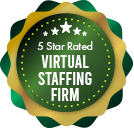
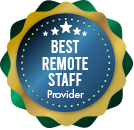
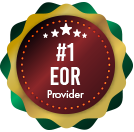
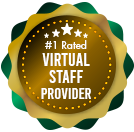



Top Talent. Lifetime Support Not Found Anywhere.
Hire Filipino
Remote Administrator
for Your Business
As a result, many entrepreneurs experience stress, fatigue, and even burnout from wearing multiple hats. Left unchecked, doing everything yourself can lead to inefficiency, lower quality work, and unfinished tasks.
Fortunately, there are remote administrators who can help you with scheduling, documentation, and other administrative matters – so you can focus on the things only you can do to really move the needle.
Let’s take a closer look.
Request A Call Back
Our Clients love us.
Be the next success story!
Ideal Remote Workforce?
Understanding the Role of an Administrator
Experienced administrators are the backbone of an organization, connecting team members and ensuring a smooth workflow across departments.
Key Responsibilities
Administrators manage a wide range of essential tasks for an organization’s daily operations. Here are some of their key responsibilities:

Communication Management - Administrators are the main contact for both internal and external communications. They manage phone calls, emails, and messages, ensuring inquiries are directed to the right departments.
Scheduling and Calendar Management - They also organize meetings, appointments, and events, coordinating the availability of all involved. This helps prevent conflicts and maintain an organized timeline of tasks and meetings.
Documentation and Record Keeping - Administrators manage documentation and securely handle confidential information. This helps organizations with regulatory compliance and serves as a reliable reference for future needs.
Project Coordination - They help track project progress to meet deadlines. They also support project managers by handling logistics, maintaining files, and updating relevant stakeholders.
Types of Administrators
There are different types of administrative roles, each with specific responsibilities in an organization. Here are some common types and their functions:

Executive Assistant - Executive or admin assistants support executives like CEOs or department heads. Their tasks include managing schedules, handling confidential information, coordinating travel arrangements, and even assisting in decision-making processes.
They also serve as a link between executives and employees, ensuring smooth communication and efficient workflows at the top level.
Office Manager - Office managers, on the other hand, oversee the daily operations of the workplace. They keep an eye on supplies, coordinate the use of facilities, and supervise administrative staff.
They also handle the office budget, maintain equipment, and resolve logistical issues to keep the office running smoothly.
Virtual Assistant - Virtual assistants are especially popular with small businesses and entrepreneurs looking to scale without expanding their on-site staff. They manage emails, schedule meetings, conduct research, prepare reports, and answer inquiries.
HR Administrator - Meanwhile, HR administrators manage employee records, coordinate recruitment and onboarding, assist with benefits administration, and ensure compliance with labor laws.
Project Administrator - Lastly, project coordinators assist in planning and executing projects. They handle scheduling, budget tracking, resource allocation, and documentation.
By managing the logistical and administrative tasks, they ensure the project stays on track and within budget, making workflows more efficient.
Ideal Remote Workforce?
Essential Skills and Qualifications
Administrators must be skilled, organized, and efficient to stay on top of their responsibilities. Here are some key skills and qualifications they should have:
Hard Skills
These can usually be developed through training or experience. Let’s look at some examples:
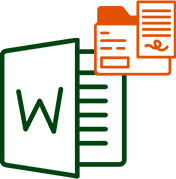
Proficiency in Office Software
Administrators must be skilled at using Microsoft Office (Word, Excel, PowerPoint) and Google Workspace for creating documents, spreadsheets, presentations, and managing emails.

Data Entry and Management
They also need strong data entry skills to input and organize information in databases, spreadsheets, or CRM systems. These skills ensure accurate recordkeeping and easy retrieval.

Scheduling and Calendar Management
Administrators must efficiently manage schedules and appointments using tools like Outlook or Google Calendar to prevent conflicts and ensure meetings are on time.
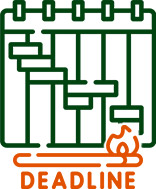
Project Management Tools
Moreover, administrators need to have a grasp of project management software like Asana, Trello, or ClickUp to coordinate tasks, track progress, and communicate with teams effectively.

Document Preparation and Filing
They must also be equipped to create, format, and organize memos, reports, and presentations while ensuring documents are properly filed for easy access.
Soft Skills
Soft skills, on the other hand, are less measurable attributes that influence how administrators perform their duties and interact with others. These include:

Communication
Administrators should have excellent verbal and communication skills to interact with team members, executives, and clients. This ensures accurate information and enables the team to coordinate more effectively.

Organization
Strong organizational skills are essential for managing multiple responsibilities, such as scheduling appointments and filing documents. Thus, effective administrators must be able to maintain a structured and organized workspace.

Multitasking
Administrators often juggle tasks like answering calls, handling emails, and managing schedules. They must be able to multitask effectively to manage these demands without sacrificing the quality of their work.

Attention to Detail
They also need to be detail-oriented to ensure accurate documentation, data entry, and communication. This prevents errors, ensures compliance, and upholds the organization’s credibility.

Problem Solving
Lastly, administrators must think on their feet, identify solutions, and adapt to changing circumstances without disrupting the team’s workflow. This is crucial for addressing unexpected challenges, like resolving scheduling conflicts or handling customer inquiries.
Educational and Professional Background Preferences
Aside from hard and soft skills, it’s also recommended to hire administrators with relevant educational or professional experience, such as:

Educational Background
Most employers prefer hiring candidates with at least a high school diploma, though degrees in business administration, management, or a related field is often preferred.

Relevant Certifications
Certifications in Microsoft Office Specialist (MOS) or Certified Administrative Professional (CAP) are also ideal requirements. For HR and project administration roles, for instance, certificates like the Project Management Professional (PMP) can be advantageous.

Professional Experience
Nothing beats relevant experience. Prior experience in an administrative role, especially for mid-level and senior positions is often proof that a candidate has the skills and knowledge necessary to succeed in the role.
Ideal Remote Workforce?
Why Choose Remote Staff for Administrative Roles
Remote Staff has been helping business owners find skilled remote workers for over 16 years and counting. Whether you need a virtual assistant, HR administrator, or remote project administrator, Remote Staff offers a pool of qualified candidates.
Advantages of Remote Staffing for U.S. Companies
Western business owners are increasingly turning to remote staffing for its efficiency, scalability, and cost savings.
Here’s a closer look at its benefits:
Cost Savings - Remote staffing eliminates the need for expenses such as rent, utilities, and office supplies. Without these fixed costs, businesses can allocate resources to sales, marketing, or product development.
Access to Global Talents - Remote staffing also lets employers hire skilled professionals from anywhere in the world, giving you access to top talent and specialized expertise beyond the local job market.
Diversity and Innovation - Hiring people from different backgrounds opens the door to a wide range of perspectives. This helps businesses approach challenges with fresh and unique ideas, driving innovation and strengthening the organization’s adaptability.
Improved Work-Life Balance - Remote work offers the flexibility to work from anywhere, giving both business owners and employees more time for family, personal hobbies, and rest.
Enhancing Productivity with a Remote Workforce
Some are skeptical about remote work, arguing employees need to be onsite to deliver quality output. However, studies prove otherwise: many companies that enable remote work actually reported improved efficiency and productivity, and here’s why:
Flexibility Boosts Efficiency - Remote work gives individuals the flexibility to design their workday around the times when they’re most focused and energized. This autonomy optimizes productivity for both early birds and night owls.
Reduced Stress - It also eliminates daily commutes, saving time and reducing the stress of traffic or public transportation. This extra time allows employees to focus more on their work, improving both their performance and overall well-being.
Customized Work Environments - In addition, remote work allows individuals to create a comfortable, focused space with ergonomic furniture, quiet areas, and other tweaks that enable them to perform at their best. This reduces distractions and improves focus, job satisfaction, and productivity.
Cost Savings and Scalability Through Remote Staffing
Remote work enables American businesses to hire skilled professionals at competitive rates while ensuring fair compensation for remote workers.
Hiring remote workers from different countries lets companies offer competitive salaries vis-a-vis local living standards.
For example, the US dollar goes further in the Philippines, so a rate of $8-10 per hour, which might be low for US workers, is above average for someone working in Southeast Asia. With this approach, employers can save money while still compensating their remote employees well.
In addition, businesses hiring remote workers save on relocation expenses and don’t need to provide transportation allowances and other in-office perks like free meals or gym memberships.
These savings can be redirected to offer compensation bonuses, research and development, or stronger sales strategies, ultimately boosting the company’s bottom line.
Ideal Remote Workforce?
Steps to Hire the Right Administrator
An administrator oversees day-to-day tasks, supports staff, and streamlines processes to improve the business’s overall efficiency. However, finding and hiring the right administrator can be quite challenging.
To find the right candidate for the role, it’s important to follow a systematic approach, which includes:

Step 1:
Define the Role and Create a Detailed Job Description.
Start by identifying the main tasks the administrator will handle, such as:
Managing schedules;
Coordinating office operations; and
Overseeing compliance with company policies.

Step 2:
Screen and Interview Qualified Candidates.
Once you have a list of qualified candidates, review applications and resumes. Focus on candidates whose skills, experience, and qualifications closely match the job description.
After narrowing your options, conduct initial interviews to further assess their fit for the role.
You can also use structured interview questions to learn how they handled challenging situations or improved processes in previous roles - especially if you want them to do the same for your company.

Step 3:
Onboard and Train Them.
When you’ve hired the right candidate, start the onboarding process. It always helps to provide a clear outline of their responsibilities and expectations.
It’s also important to have regular check-ins during the early stages to address any challenges, answer questions, and provide feedback.
However, many American business owners don’t have the skills or resources to oversee or facilitate all of these hiring processes, so they delegate these tasks to experienced partners like Remote Staff.
Ideal Remote Workforce?
Frequently Asked Questions About Hiring an Administrator
Here are some frequently asked questions (FAQs) by business owners about hiring a remote administrator:
How Do I Help My Remote Administrator Feel Like They’re Part of the Team?
Communicate regularly by scheduling virtual check-ins and team meetings, where they can actively participate and share updates on their tasks and progress.
It also helps to facilitate informal interactions, such as virtual team-building activities, game nights, or coffee chats, to build rapport with other team members.
Should I Look for Industry-Specific Experience When Hiring a Remote Administrator?
Not necessarily. While industry-specific experience can be valuable, it’s not always required when hiring a remote administrator.
Look for candidates with strong communication, organization, and time management skills. While industry-specific experience can shorten the learning curve, a good candidate can become a great administrator with proper training.
What Are the Best Practices for Managing a Remote Administrator’s Schedule?
Here are some best practices to consider:
Set Clear Expectations - Establish work hours, task deadlines, and availability requirements from the beginning.
Prioritize Tasks Together - Collaborate every week to identify high-priority tasks and set achievable goals.
Encourage Autonomy - Trust your administrator to manage their time efficiently while offering guidance as needed.
Monitor Workload and Wellbeing - Evaluate their workload regularly to prevent burnout and support a healthy work-life balance.
Ideal Remote Workforce?

A great remote administrator is one of the best-kept secrets behind many successful SMEs.
They are the backbone of your daily operations, allowing you to focus on strategic decision-making and core business functions.
Thanks to remote work, more American business owners are hiring skilled remote workers to manage schedules, coordinate workflows, and handle essential tasks. This allows them to focus on what they do best – growing their business.
For assistance in finding the right administrators, call us today or request a callback now.
Ideal Remote Workforce?